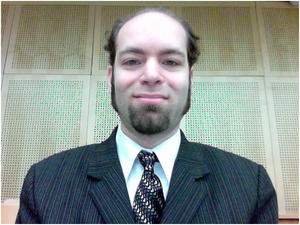Judd Schechtman participated in the Academic Initiative by undertaking independent research on the topic of “Is Sprawl Still the Law? Linking Smart Growth to Transportation Capacity.” His faculty advisor was Robert Burchell and his professional advisor was Ed Buroughs, Commissioner of the Westchester County Department of Planning.
Judd’s project investigated the hypothesis that local land use laws and policies create barriers to intensification of land uses around existing infrastructure, and therefore impede climate stabilization and sustainability goals. The zoning laws and local plans for land use within a half mile of all MTA Metro-North Railroad commuter stations in Westchester County were analyzed for their compliance with sustainability and smart growth principles. They were measured and indexed according to newly developed and existing measures. Results indicate that zoning and other barriers do limit development in Transit-Oriented Developments, though the extent to which they do so varies widely. Although growing through transit-supportive land uses is an essential means to reduce congestion and greenhouse gas emissions, substantial urban form changes cannot likely be achieved without reform to the legal and incentive structure driving municipal land use decisions.
Update
Judd Schechtman is a Ph.D. candidate at the Bloustein School for Planning and Public Policy at Rutgers. He reported 30 2009-2010 PARTICIPANTS Judd Schechtman continued Through the Academic Initiative, Alexander Wolk participated as an intern in the NYCDOT Division of Planning and Sustainability and worked on a Bus Management Plan for Lower Manhattan. Curb space is a valuable commodity throughout New York City. Lower Manhattan, a tourist and business district known for its congested streets, is no exception. With a daily influx of over a thousand MTA, commuter, intercity and tour buses, the availability of curbs for these vehicles is at a premium. With the impending opening of the World Trade Center Memorial and the gradual build-out of the East River Waterfront, competition for curb space will increase dramatically unless actions are taken to accommodate both increased demand for parking – particularly among tour bus operators – and a decreasing supply of parking due to area developments. The Bus Management Plan for Lower Manhattan included analysis on pricing strategies and payment options, procuring off-street lots, and considered broader integration challenges moving forward. Update Alex noted, “The September 11th Memorial Program for Regional Transportation Planning provided an invaluable experience working at the NYC Department of Transportation (DOT) while offering a rare opportunity to directly contribute to research that shed light on transportation issues related to accessing the September 11th Memorial itself, and overall parking challenges in Lower Manhattan. My time at the DOT inspired me to pursue a career in public service and to continue to work on issues of vital importance to all New Yorkers. Currently, I am a project manager at the NYC Department of Environmental Protection working on initiatives to restore the health of the city’s most polluted waterways through innovative stormwater management programs.” Alexander Wolk Urban Planning and Public Service, New York University that he was very grateful to have been a part of the September 11th Memorial Program.
He noted that, “It meant a lot to me to participate in a program honoring the lives of the NYMTC staff lost in the attacks. As a born-and-bred New Yorker, the attacks impacted me in an especially poignant way. I am particularly moved by being able to give something back in the spirit of those lost.” He also indicated that the September 11th Memorial Program inspired him to focus his dissertation research on the New York metropolitan area, and helped make his work on transportation and land use theory relevant to practice. Judd enjoyed being a part of the professional and research community and participating in NYMTC and UTRC proceedings and conferences.




